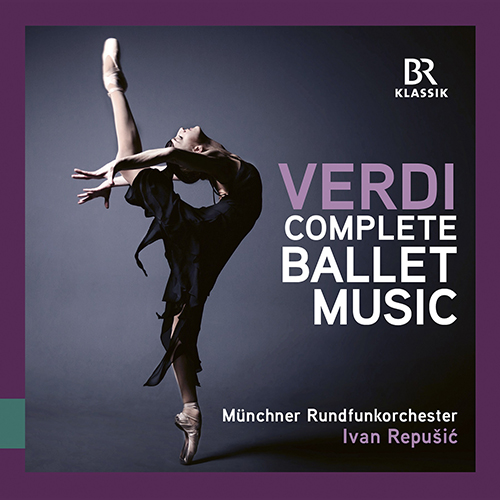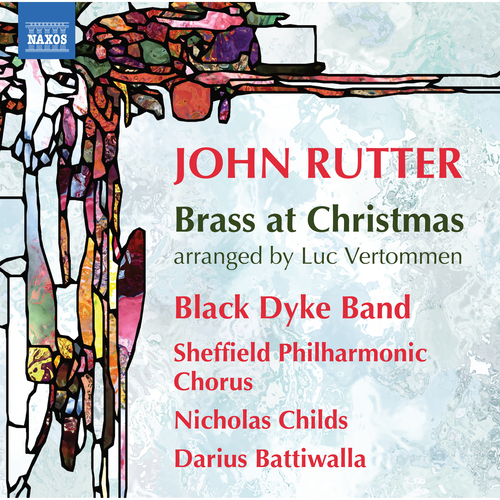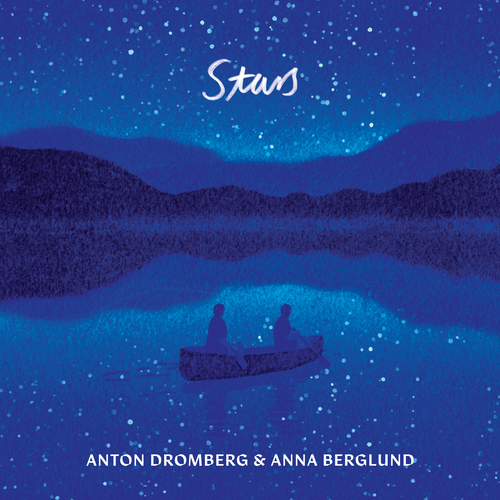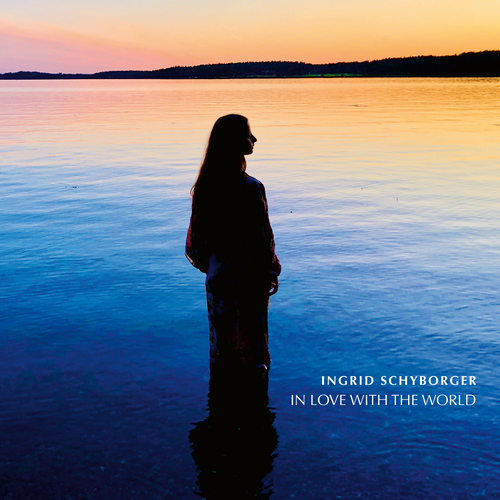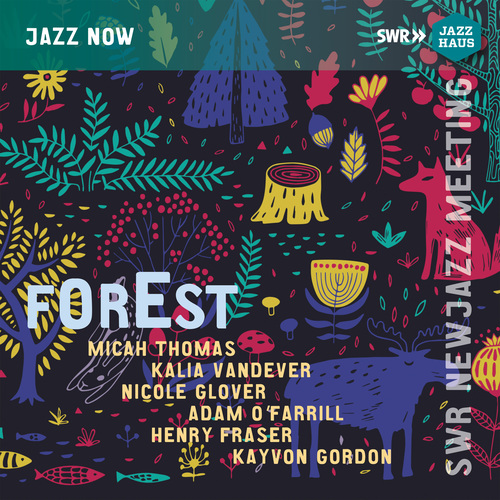In addition to its own wide-reaching monthly new releases (see www.naxos.com/newreleases.asp), Naxos also distributes several leading labels in many countries around the world. Here is a choice selection of recent releases from some of these distributed labels.
ARC Music is a pioneering record label and music publisher specialising in world and folk music. Since its inception in 1976, ARC Music has dedicated itself to preserving the rich musical traditions of diverse cultures and sharing them with the world. The mission is to offer music that not only reflects the authentic sounds of different cultures but also carries a message of unity and positivity.
Today, ARC Music proudly boasts the largest and most diverse catalogue of traditional and contemporary ethnic music from all corners of the world. With hundreds of albums spanning over 120 countries, the repertoire captures the vibrant musical heritage of cultures across the globe. As the longest-standing label in the field of world music, ARC Music continues to lead the way in celebrating and spreading the sounds of the world, making it the original pioneer of world music.
Experience the captivating fusion of Chinese pipa and Senegalese kora as Gao Hong and Kadialy Kouyate exchange cultural stories through their masterful music. Streaming now on YouTube.
Greek folk songs sprang from a variety of sources, including Homer’s epic poems, the lay poems of the Dionysian revels, and impromptu laments. Here, with 19 solo musicians, Michalis Terzis continues to preserve the traditional music of his home country using early motives and dance rhythms that perfectly capture the essence and character of Greece.
Michalis Terzis’ Nostimon Imar (The Day of the Return) – taken from a verse of Homer’s Odyssey – is a symbolic return to the original style of Greek music, and includes traditional motives and dance rhythms from all over Greece. While presenting the music in a contemporary style, alongside 19 solo musicians, Michalis Terzis preserves the authentic character and spirit of the musical heritage of his country.
Alvorada present their unique brand of Brazilian instrumental music. Rooted in the choro tradition, their rich compositions embrace rhythms from across Brazil, including samba, xote, bossa nova and baião, tinged with further influences from jazz, tango and more. Faz Tempo pushes traditional expectations with its bold and intricate arrangements, endlessly varied textures, and breathtaking improvisations and interplay – all transmitted with an infectious joy and soulfulness.
Leonard Bernstein conducted regularly in Munich from the 1980s onwards. It was during this time that he came to appreciate and love the Bavarian Radio Symphony Orchestra in particular. In October 1976, Bernstein had appeared with an all-Beethoven programme, and in 1983, he began a series of annual concerts with the orchestra. In 1987, he rehearsed Franz Schubert’s Great C Major Symphony, which was performed in the Congress Hall of the Deutsches Museum in Munich. This album features not only the live recording of this concert event but also a rehearsal recording on a bonus CD, Conductors in Rehearsal, which has been preserved in the sound archives of Bavarian Radio. Bernstein’s warmth and friendliness, as well as his astonishingly good German, are most impressive.
Harriet Krijgh is one of today’s most exciting and promising young cellists. Her grace and expressiveness touch her audiences as soon as she steps onto a concert platform. Since 2012, she has recorded six discs for Capriccio, producing a discography featuring music by Kabalevsky, Haydn, Brahms and Rachmaninov, as well as several French composers. The winner of numerous competitions, Krijgh was named ‘Rising Star’ by the European Concert Hall Organisation and was artistic director of the Utrecht Chamber Music Festival in 2017 and 2018. With this new album, she makes a long-held wish come true by presenting two of the most popular cello concertos, those by Dvořák and Elgar.
When Nikolai Kapustin’s music was discovered by a wider audience in the West, it certainly came as a shock: Who was this Soviet composer, whose music mostly resembled an Oscar Peterson improvisation, but was notated in heavily detailed scores? As we continue to discover more of his music, not least on this new recording, Kapustin shows how he developed his style subtly and steadily, always moving with the times. As the music that influenced him changed, so did his own. The development of Big Band Jazz can be traced in his work and, in that sense, Kapustin never settled on one style, except that he fused jazz and classical music so inseparably in the first place.
Gabriel Fauré is best known for his Requiem and Pavane, but these are not typical of an output that focused largely on solo piano pieces, songs and chamber music, many of which were orchestrated by others. His Violin Concerto was never completed but the surviving first movement reveals Fauré’s characteristic playfulness with rhythm and harmony. The short prelude to Pénélope, Fauré’s only opera, conveys the sombre and passionate moods of its heroine, heard here alongside favourites such as the poignant Élégie, the beloved Dolly and, famous among flautists, the distinguished Fantaisie.
Charles Ives was a master of miniatures, and this program brings together a miscellanea of numerous shorter pieces that includes seven world premieres. Embracing ragtime before it became a craze at the end of the 19th century, Ives’ Four Ragtime Dances juxtapose the sacred and profane as part of his lifelong quest to find unity in all humanity. Chromâtimelôdtune is one of Ives’ most startling creations, appearing here alongside experiments, marches, arrangements and enticingly incomplete fragments that form a musical selection of remarkable variety.
Dedicated to Francis Poulenc, Vittorio Rieti’s First Piano Concerto formed part of his early success in Paris during the 1920s, the work’s high spirits reflecting Rieti’s recent marriage and the birth of his son Fabio. The Second Piano Concerto started out as a harpsichord concerto for Wanda Landowska but was later recast. The Third Piano Concerto is notable for its deeply felt central Andantino, while the Concerto for Two Pianos and Orchestra is exuberant with cinematic themes. All of these works feature witty passages for orchestral soloists in dialogue with the piano, imbued with Rieti’s original and unpredictable style.
This sequel to the Gramophone Award-nominated Americascapes album (ODE1396-2) by the Basque National Orchestra and Robert Treviño offers a thrilling and a deeply personal journey into the music of three American composers. Each composer created a distinctive aesthetic world, and with two of them, conductor Robert Treviño had the privilege of direct artistic collaboration.
Kind of Classic features the world première recording of Nuno Côrte-Real’s Kind of Concerto, Op. 65, alongside two concertante works: Luar Galego, Op. 23 for cello and strings, and Elegia, Op. 33B for piano and orchestra. Defining what is ‘classic’ and what is not is a complex matter, and the same could be said for a concerto. The origin of the term has long been debated: does it come from the Latin verb concertatum meaning ‘to fight’ or ‘to compete’, or from consertum meaning ‘to intertwine’ or ‘tie up’? Is a concerto a clash between two distinct instrumental entities, or is it about the nature of their dialogue? Concertante music can embody both ideas – a kind of classic and a kind of concerto. This is not merely a game of words, but rather a heartfelt tribute by the composer to the legendary 1959 album Kind of Blue by Miles Davis (1926–1991).
Following his album debut in 2023 with repertoire by British composer John Tavener, Lionel Martin devotes his latest album to Russian repertoire from the 19th and 20th centuries. All three composers on this programme come from the same region, and all three struggled with their fate. Kabalevsky and Shostakovich were neighbours, even living in the same house for a while. Both dealt differently with the political regime – and the regime with them. Shostakovich was a thorn in the side of the Soviet authorities, and his music repeatedly and clearly criticises them. Kabalevsky came to terms with the regime and even worked for it at times. Tchaikovsky also suffered from the conventions of his time and ultimately broke under the strain.
Children’s Stories features world premiere recordings of works based on beloved children’s literature by superstar classical composers Michael Abels (Frederick’s Fables for narrator and orchestra) and Augusta Read Thomas (Gwendolyn Brooks Settings for children’s choir and orchestra). Both pieces bring children’s literary narratives stunningly to life through music.
Making its commercial recording debut, the Illinois Philharmonic Orchestra, under the baton of its music director Stilian Kirov, is joined by acclaimed bass-baritone Michael Sumuel, narrating Frederick’s Fables, and youth choirs Anima – Glen Ellyn Children’s Chorus and ChiArts Choir in Gwendolyn Brooks Settings.
This recording exemplifies collaboration across Chicago’s musical scene, combining the talents of renowned composers, a Chicago-area orchestra, and community choirs to celebrate stories that speak to the universal experience of growth, community, and the power of storytelling.
Winner of the 2016 Abbiati Prize, baritone Nicola Alaimo is one of the leading singers of his generation, with a supreme versatility that is explored in full in this Donizetti recital. Honourable, heroic and romantic characters are all vividly brought to life in Alaimo’s interpretations, such as the tragic figure of Enrico, Duke of Chevreuse from Maria di Rohan, whose discovery that his wife is in love with his friend brings out the most intense feelings of any solo passage in European opera of the day.
Since its foundation in 2013, the Berlin Opera Group has made a name for itself with Berlin premieres that have included Donizetti’s Deux hommes et une femme and Betly, plus other operatic rarities. This album is a Deutschlandfunk Kultur recording of the 2021 performance of Wolf-Ferrari’s comic opera Il segreto di Susanna staged at the Konzerthaus Berlin.
Lidia Fridman can also be heard in the title role of Dalinda (OC989). The orchestra of the Berlin Opera Group plays under the direction of Felix Krieger.
Ondine’s third album devoted to the music of Lithuanian-American composer Žibuoklė Martinaitytė showcases her powerful choral music, performed by the award-winning Latvian Radio Choir conducted by Sigvards Kļava. Focusing on unaccompanied voices, the album features four deeply emotional and expressive works that explore the vast timbre possibilities of the human voice.
The album opens with Aletheia (2022), composed just as Russian troops had crossed into Ukraine, followed by Ululations (2023), a haunting ritualistic expression of mourning inspired by the wailing of women during war. Chant des Voyelles takes its name from a sculpture by Jacques Lipchitz, reflecting Martinaitytė’s exploration of vowel sounds as a primal form of communication that goes beyond words. The album concludes with The Blue of Distance (2010), a poignant work that, despite being inspired by text, contains no lyrics, further emphasising the emotive power of vocal sound.
The present re-release contains the premiere of the new Don Carlo production from October 1970 in Vienna. The occasion was marked by a great scandal caused by Karajan’s fans, who expected their idol to conduct the new production. Karajan, however, entrusted German conductor Horst Stein with the new production and, although Stein – by then for several years repertoire conductor with the Vienna State Opera – had until then been, a favourite of the local audience, on this occasion he was greeted at the curtain call with a torrent of boos, which were completely unrelated to his artistic performance. The singers, by contrast, were cheered to the rafters; the house had handpicked the cast for this production, right down to the smallest role.
Il pellegrino del nulla, composed to mark the centenary of Giacomo Matteotti’s death, does not focus on the historical details of the assassination. Instead, it abstracts the event to convey a timeless message, free from the constraints of its cultural context. Antonio Gramsci described Matteotti as a ‘pellegrino del nulla’ (pilgrim of nothingness), a figure who rebelled and sacrificed himself for an ideal, one that transcends the limitations of his time.
Perugini and De Santis emphasise that any pure, uncorrupted ideal of freedom is destined to triumph over oppression. The strength of such an ideal allows it to overcome the impositions of power, even in the face of pain and death. Conversely, Matteotti’s murder serves to legitimise his censored ideals and immortalise the value of his sacrifice.
This concert recording from Mozart Week 2024 focuses on the horn quintets of Wolfgang Amadeus Mozart and Anton Reicha, two major works representing a genre that has rarely been explored. After the Prague-born composer, music theorist and pedagogue Anton Reicha briefly tried to establish himself in Paris in 1799, he finally settled in the French metropolis in 1808. The Horn Quintet in E Major, Op. 106 is one of his last compositions. It’s paired here with Mozart’s Rondo, K.514 and the Horn Quintet, K.407. This recording is of the Baborák Ensemble’s performance at this year’s Mozart Week in Salzburg.
Each country in South America has over the centuries produced varied popular traditions and distinctive dance rhythms. These include the vivacious and zestful Brazilian choro, as well as the Argentinian tango, of which we hear an example from ‘the father of the tango’, Ángel Villoldo. French composer Roland Dyens contributes Brésils, his refined tribute to the musical landscape of Brazil. The Guitalian Quartet have arranged Arturo Márquez’s popular Danzón No. 2 along with several other vibrant and evocative pieces from Brazil, Argentina and Mexico.
Nikolay Tcherepnin and his son Alexander hail from a dynasty of distinguished composers spanning three generations. This first of two volumes focuses on their complete works featuring the violin and piano. Nikolay’s Cadence fantastique is longer and weightier than its title might suggest and drifts between dream and delirium. Alexander’s early Violin Sonata in C Minor was recently discovered at the Paul Sacher Foundation archives in Basel and is heard in a new edition by Giorgio Koukl. The evocative Trio Concertante from 1960 is a piano trio arrangement of the Triple Concerto from 1930. Pianist Giorgio Koukl and the violinist Klaidi Sahatci are joined by cellist Johann Sebastian Paetsch in the Piano Trio and Trio Concertante.
After establishing a new genre with his Sonatas for Piano and Cello, Op. 5, Beethoven returned to it a decade later, working on his Sonata in A Major, Op. 69 in parallel with his Fifth and Sixth symphonies.
With its unexpected shifts of harmony and mood, this is a work filled with virtuoso flourishes and experimental surprise, elements shared in the defiance of convention and lyrical brilliance of the two Sonatas, Op. 102. Beethoven considered Handel to be ‘the greatest composer that ever lived’, demonstrating pianistic dexterity in the Variations, WoO 45 on the popular melody ‘See the conqu’ring hero comes’. The first volume in this series is available on Naxos 8.574529.
Celebrating the centenary of Danish composer Axel Borup-Jørgensen (1924–2012), this album offers a stunning tribute to one of the 20th century’s great ‘silent individualists.’ Though largely self-taught, Borup-Jørgensen was a pioneering figure in Danish music, whose sound world was shaped by his experience at the Darmstadt Summer Courses for New Music, yet he never adhered to any specific ‘ism.’ His meticulous craftsmanship and unique approach to tone colour are showcased in this diverse collection of chamber works, including his only woodwind quintet and a piece that employs junkyard percussion.
This album, the eighth in a decade-long project documenting Borup-Jørgensen’s life and legacy, features performances by the Esbjerg Ensemble and award-winning pianist Kristoffer Hyldig, with crystal-clear DXD audio production by Mette Due. Ideal for listeners seeking to explore Borup-Jørgensen’s rich sonic universe, this recording highlights the composer’s innovative spirit and lasting influence.
Contrappassi features a dynamic collaboration between pianist Leonardo Zunica and electric guitarist Leandro Lo Bianco, performing contemporary works inspired by Dante Alighieri’s Divine Comedy. The programme blends modern compositions with historical references, offering a fresh and imaginative exploration of Dante’s themes. It opens with Poul Ruders’ Dante Sonata, a work divided into two distinct movements with contrasting characteristics. The roots of the Dante Sonata are not only linked to Dante’s Divine Comedy but also reflect the composer’s admiration for Liszt’s Sonata in B Minor. The album then moves through Gabrio Taglietti’s Malebolge and Tre Canzoni di Francesco Landini, a journey that leads to the eighth circle of Hell, before closing with Leandro Lo Bianco’s Three Improvisations on R. Rauschenberg’s ‘Dante’s Inferno’ for solo electric guitar and electronics.
Dark Hymnal is a series of meditations derived from my opera Black Lodge. Played without pause, the fifteen sections of Dark Hymnal circle back on themselves, as if lost in a spiritual maze. As you listen, your ears might deceive you, at times making you think you hear things that aren’t actually there. It might at other times feel as if the music – and the audio – is attempting to crack out of the frames which contain it: sounds throb and push against speaker cones; chords melt, or vanish after merely a hint, their harmonies showing one path, then pivoting toward another, more dangerous, more enticing. In this, Dark Hymnal may feel simultaneously lulling and disconcerting, comforting and perplexing, and even at times, frightening; truly a work with its spiritual roots in the world of Black Lodge.
Originally created as the score for Sandra Powers’ immersive theatre performance BARDO–itself a pre-show event for the west coast premiere of Black Lodge – it received its world premiere in this capacity on October 19, 2024 at the United Theatre on Broadway in Los Angeles, co-presented by CAP UCLA and Beth Morrison Projects.
Lasting ninety minutes, Dark Hymnal is best experienced in full, possibly in the dark, and with a sense of openness to where it might take you. As in Black Lodge, this will lead to an experience that will be different for everyone. I encourage you to embrace that sense of the unknown, and go with it where it leads.
Barry Douglas’s acclaimed survey of Schubert’s piano sonatas continues with this programme pairing the Sonata in E-Flat Major, D. 568 with the Sonata in G Major, D. 894. Published posthumously, the E-Flat Major Sonata is a revision and completion of the D-Flat Major Sonata, D. 567. The original was written in June 1817, the revision soon afterwards. This sonata stands out in the canon for its light-hearted, easy-going character in contrast to the more serious nature of the other sonatas. The G Major Sonata, the last to be published in Schubert’s lifetime, was completed in 1826. The work holds a special place for many pianists, including Imogen Cooper, Sviatoslav Richter, and Paul Lewis; the latter two have declared it their favourite, whilst Robert Schumann described it as ‘the most perfect in form and conception’ of any of Schubert’s sonatas. Douglas completes his programme with two Liszt transcriptions of Schubert songs: Gretchen am Spinnrade and Wohin? (from Die schöne Müllerin).
Thomas Agerfeldt Olesen (b. 1969) unites tradition and innovation in his piano works, performed by Rolf Hind. The centrepiece, a substantial Piano Sonata, reveals the Danish composer’s musical imagination in all its unbridled complexity and introspection. The 6 Sonatas playfully reimagine classical forms, while the Little Miracle Prelude ingeniously reorders Bach. Throughout, Olesen’s music reflects on history’s influence, seeking a contemporary voice amid familiar echoes.
The Viennese composer and pianist, Wilhelm Grosz, was also a renowned conductor, orchestrator and recording director – a musician of remarkable versatility and wide-ranging influences. This first volume of his complete piano music reflects his immersion in the stylised dance music of his time, with the two Tanzsuites being distinctive examples. He sought novel ways to bring individuality to the Classical sonata, and in the 12 Improvisations, Op. 45 his music is full of innovation with evocations of gospel singing and tango.
Internationally renowned harp and electronica duo FitkinWall follow threads of migration, loss and longing in their new album Uist. Composer Graham Fitkin has produced new works based on old Gaelic songs and Highland tunes. Scottish harpist Ruth Wall performs on concert, electro, and wire-strung harps, with Fitkin conjuring mesmerising soundworlds with electronics, samples and loops. Ruth and Graham combine the very old with the very new, placing ancient instruments in unusual contexts.
The music is constructed with care, precision, and space to breathe – eerie melodic fragments, pulsating patterns, sumptuous harmonies – drawn together in a beguiling but understated synthesis. Allusions can be drawn to new classical, folk, even ambient, and systems music, with hints of artists such as Steve Reich, Philip Glass, Lau or Haushka somewhere in the ether.
Hildegard of Bingen (1098–1179 stands as the first composer in the European canon with a definitively known name, and her legacy in vocal music has had a profound and lasting influence on the development of Western music. For this album, pianist Katelyn Bouska has reimagined Hildegard’s transcendent compositions, using her piano to emulate the resonance and depth of a full choir, capturing the spirit of Hildegard’s visionary music.
To celebrate Hildegard’s enduring relevance, Yarlung has commissioned four new works – three composed by Katelyn herself and one by Maya Miro Johnson – that respond to the themes of spiritual transformation and the Night Journey, central to Hildegard’s philosophy. Envisioning the entire album as a journey through the Dark Night of the Soul, Katelyn has crafted a deeply spiritual and transformative musical experience. The album opens with Amy Beach’s Hermit Thrush at Eve and closes with Hermit Thrush at Morn, creating a cyclical sense of spiritual exploration that mirrors the themes of awakening and renewal.
Katelyn’s tribute to Hildegard’s antiphon for the creator reflects on the profound connection between the Creator and creation, while the final piece Karitas habundat, reminds us that love is the fundamental force underpinning the universe.
The Staatsoper Berlin presents a new production of Mozart’s early masterpiece Mitridate, re di Ponto. This captivating tale of love, power, and betrayal revolves around a king and his two sons, who vie for the love of the same woman. Under the baton of Marc Minkowski, Les Musiciens du Louvre bring fresh energy and nuance to Mozart’s intricate opera seria, while the all-star cast shines with an impressive vocal range. In a staging where different worlds converge, director Satoshi Miyagi and his Japanese production team have created an atmosphere that is nothing short of magical. ‘Marc Minkowski and his brilliant orchestra Les Musiciens du Louvre […] a real coup.’ (Tagesspiegel) ‘Singing feats of brilliance!’ (Berliner Zeitung)
A century after its world premiere at Teatro all Scala under Arturo Toscanini, conductor Francesco Cilluffo opened the 2024 season of the Teatro Lirico in Cagliari with this acclaimed production of Arrigo Boito’s rarely performed Nerone. Set in Rome and focusing on Nero during a time of conflict between belief in Roman Gods and Christianity, Boito’s opera displays a forward-looking harmonic palette with an eloquent and masterly handling of large orchestral forces.
Internationally celebrated as both a soloist and conductor, Florian Krumpöck has firmly established himself as a prominent figure on the global concert scene. Appointed one of the youngest music directors in German history in 2011, Krumpöck has demonstrated his versatility by mastering a broad range of opera and concert repertoire, in addition to his extensive piano skills. He particularly captivates audiences with his unique ability to perform both as a soloist and as a conductor. ‘Forget Lang Lang and Arcadi Volodos. There are highly virtuoso keyboard tigers in Austria, too,’ was the verdict of the daily newspaper Die Presse on the pianist’s solo debut at the Vienna Konzerthaus.
The son of a cellist and an art historian, Krumpöck counted Rudolf Buchbinder, Gerhard Oppitz, and Elisabeth Leonskaja among his teachers at an early age, some of the most important pianist personalities of our time. Sir Peter Ustinov presented the young musician to a wide audience early on. After an audition, no less a person than Daniel Barenboim judged him simply ‘a wonderful pianist’ and thus paved the way for a promising international career.
Influential German poet Barthold Heinrich Brockes reinvented the Passion oratorio tradition, transforming its textures into a much-admired poetic meditation that took hold of the imagination of many German Baroque composers. Of several settings, Handel’s is by far the most famous, creating an eloquent and moving score from his friend’s libretto. This acclaimed staged version directed by Walter Sutcliffe extends the vision of the original by asking fundamental questions about the evolution of mankind and its dangerous implications for planet Earth.
When young Japanese geisha Cio-Cio-San marries American naval officer Pinkerton, she believes she is entering a marriage for life. Forsaking her religion and community, she dreams of a future with her new husband, only to learn that for Pinkerton, their marriage is merely an illusion — one with tragic consequences.
With its exquisite score, Giacomo Puccini’s poignant 1904 opera is as beautiful as it is shattering. Drawing inspiration from 19th-century European images of Japan, Moshe Leiser and Patrice Caurier’s production stars Asmik Grigorian in the title role, with Kevin John Edusei conducting.
Following the conventions of the Paris Opéra, Giuseppe Verdi was also obliged to compose ballet music for the French premieres or first performances of his stage works. Between 1847 and 1894, he wrote a total of seven so-called divertissements, some extensive, for Jérusalem, Les vêpres siciliennes, Le trouvère, Macbeth, Don Carlos, Aida and Otello. With catchy melodies, lively, accentuated rhythms, descriptive sound effects and vivid gestures, but above all with incredibly colourful instrumentation, he succeeded in giving new impetus to the ballet music of his day. While the ballet music was generally omitted from productions of Verdi’s operas for a long time – with the exception of Aida – it has recently been performed increasingly often and linked to the dramaturgy of the respective work. These beautiful, well-crafted pieces of music should no longer be withheld from the public. On the new, double-disc releasefrom BR-Klassik, the Munich Radio Orchestra and its chief conductor Ivan Repušić present Verdi’s complete ballet music.
John Rutter is probably the most acclaimed and successful composer of carols alive today. His large selection of popular sacred choral pieces in the genre reflect and celebrate the Christmas story. Rutter’s unerring sense of melody combined with a rich harmonic palette makes his music instantly accessible to both performers and audiences alike. This recording brings together a selection of his most famous Christmas carols in beautiful new arrangements for brass performed by the Black Dyke Band.
Shimmering melodies in exceptional interplay – a long-awaited debut!
Pianist Anton Dromberg (Bear Garden, Erik Palmberg Quartet) and vocalist Anna Berglund (Anna Arco, Berglund Band) are no novices on the Swedish jazz scene. In 2021, they celebrated their tenth anniversary as a duo and released the debut EP, Dream Maker, which was named ‘Vocal and Piano Album of the Year’ by Lira Music Magazine. The duo’s songs have aired on Swedish national radio, P2, and have been featured on several major Spotify playlists such as Svensk Jazz. Their music has been described as heartfelt and melodic, with exceptional interplay, whether it be original material or a new interpretation of a Burt Bacharach ballad.
In December 2023, the duo began recording their first full-length album, Stars, with bass player Amanda Karström and drummer Henrik Jäderberg. About half of the songs are original compositions by Dromberg and Berglund, while the rest are carefully selected melodies with special meaning to the bandleaders. The first single, Stars, features saxophonists Fredrik Ljungkvist, Tom Gabrielsson, and Martin Wirén. Another track, Lost at Sea, includes a string quartet led by violinist Erik Arvinder.
Ingrid Schyborger is a 25-year old artist, composer, film scorer, and bass player based in Stockholm.
Originally from Stockholm, Sweden, Ingrid grew up in a small neighbourhood outside the city, with a house full of musical instruments. She began playing the piano at the age of five and, by the age of nine, she had added classical cello and electric bass to her repertoire.
At 17, Ingrid picked up the double bass and quickly fell in love with the instrument. After studying jazz in high school, she went on to pursue an undergraduate degree at The Royal College of Music (KMH) in Stockholm, followed by a Master’s Degree at The Manhattan School of Music in New York. Ingrid has since played with a wide range of prominent musicians across Europe, Sweden, the US, and Kenya.
Her debut album, In Love with the World, features a unique blend of jazz quartet and string quartet, a project Ingrid has been developing for the past 2.5 years.
Recognised as one of the most exciting bass players in the modern jazz scene, Ingrid is also making a name for herself as a composer and musician. Her work continues to earn acclaim as she collaborates with leading artists in Sweden, Europe, the US, and beyond.
The SWR NEWJazz Meeting is a legendary sound laboratory for improvised music, which has been bringing musicians together since 1966 in order to evolve their creative ideas free from the constraints of daily business. Over four days, this gathering creates a free space for experimentation, with the aim of developing a concert programme that is then presented on tour throughout the broadcasting area.
Micah Thomas is a visionary among the pianists on New York’s current improvisation scene. He became famous as the alert, energetic piano engine of the Immanuel Wilkins Quartet. As curator of the 2022 SWR NEWJazz Meeting, Thomas put together a band of outstanding New York improvisers. The sextet had never played together in this form before. When asked about a name for the SWR NewJazz Meeting project, Thomas replied: Forest. The musical fruits of this album in fact shimmer like a dew-covered forest landscape that extends much farther than a single glance could take in. And in this ‘forest’ something magical happens: it is dark, calm and quiet, before suddenly, for a moment, rare, shy animals appear out of the mist and fog. These tracks, selected subsequently by Thomas, offer such an experience. They are deliberately identified as fragments, highlights from long, spontaneous improvisatory passages.
Make sure to subscribe to Naxos newsletters for other great offers.













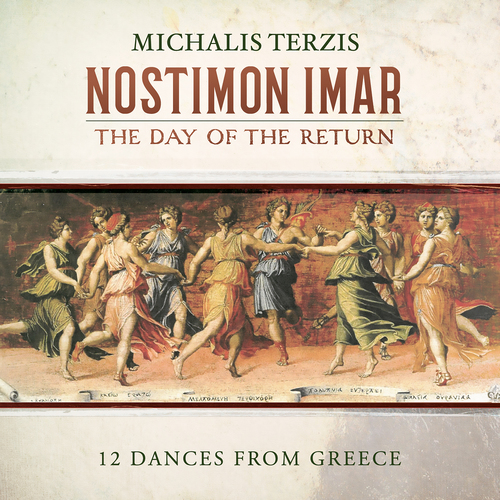
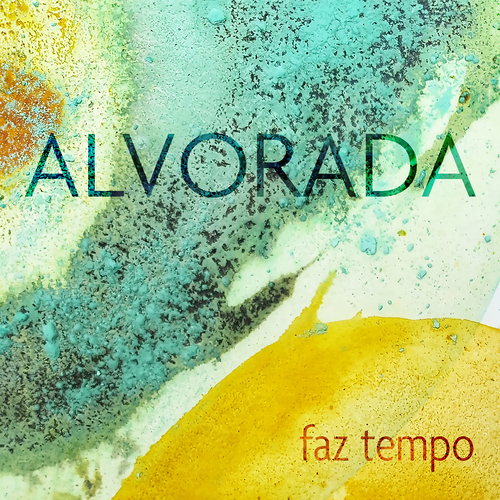
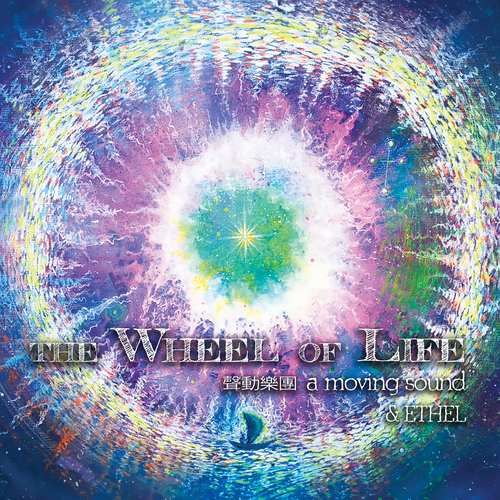
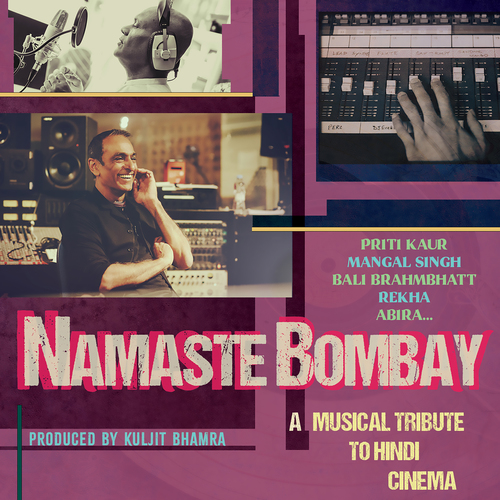



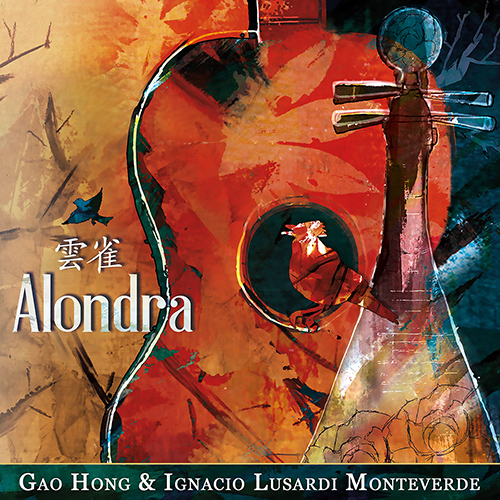







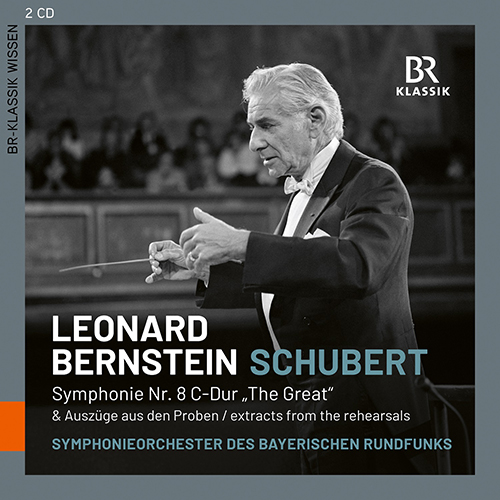
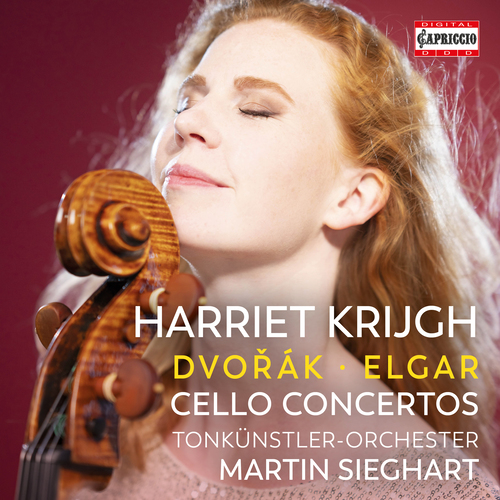
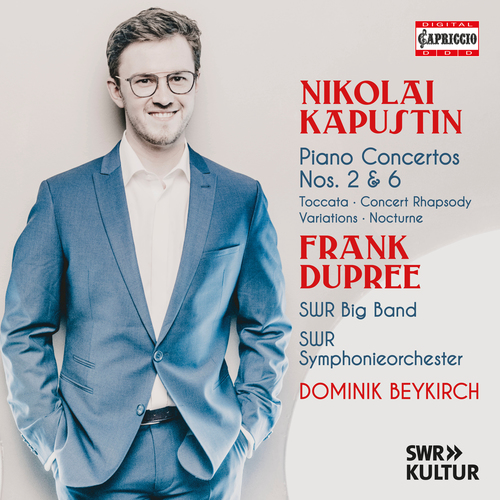
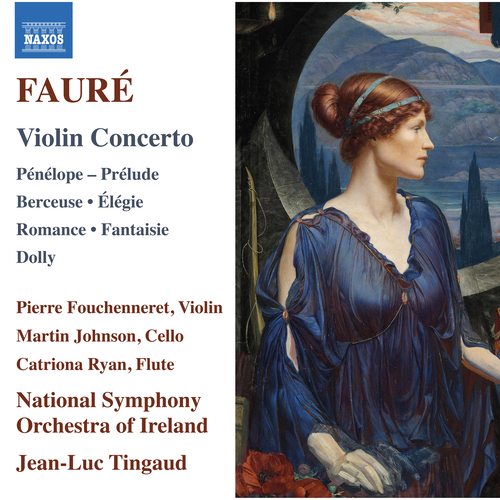
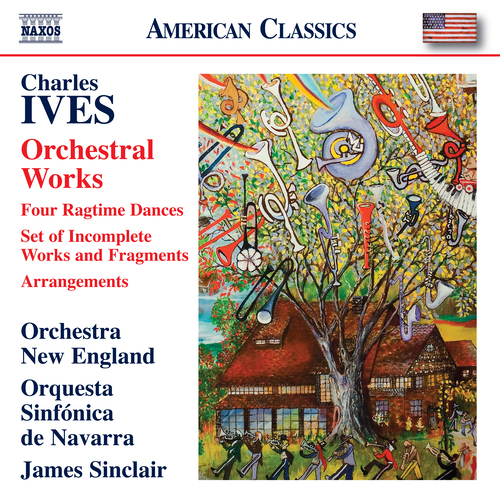
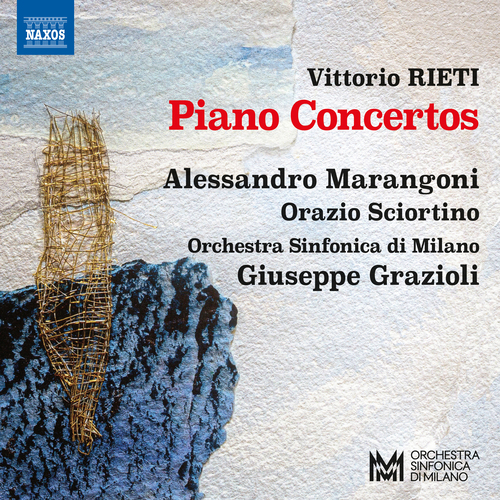
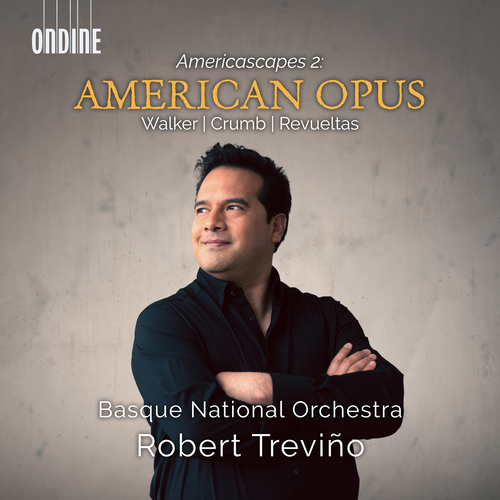
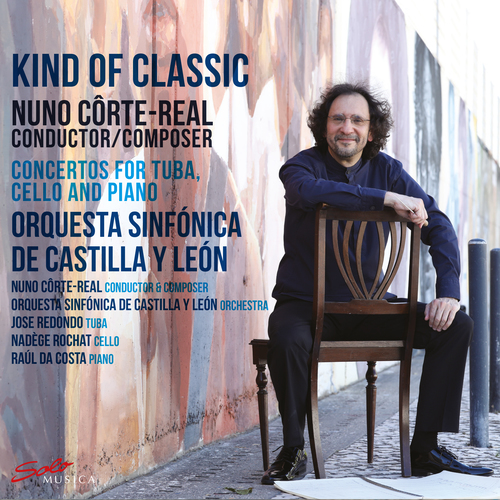
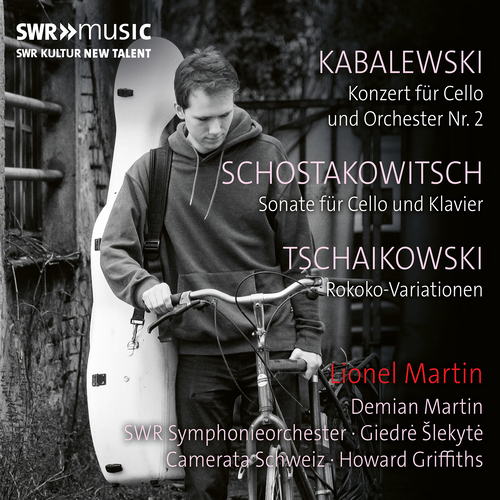
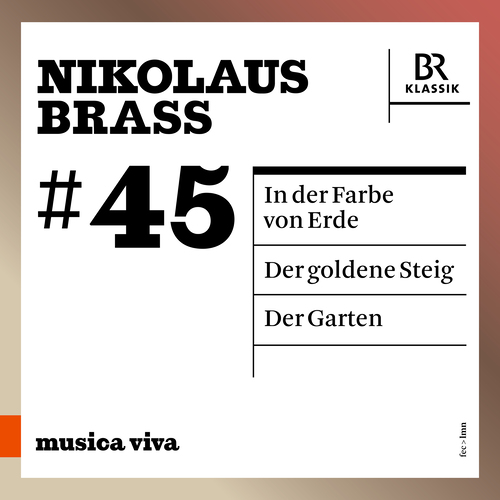
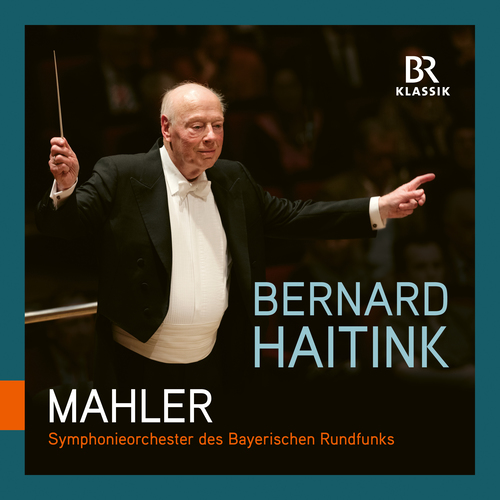
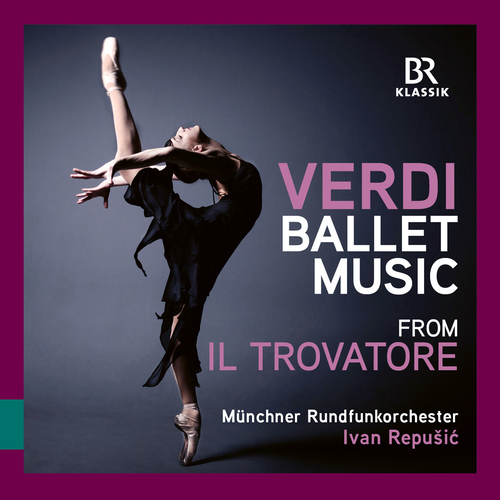
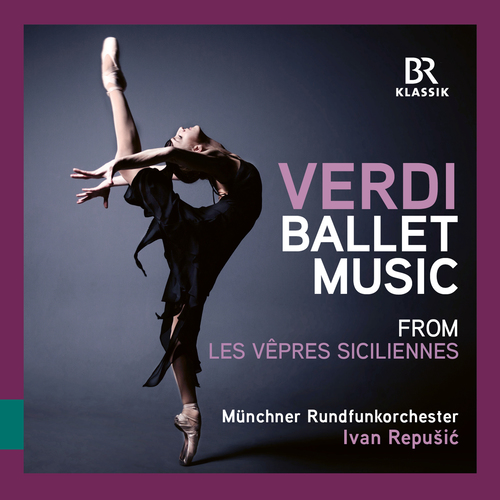
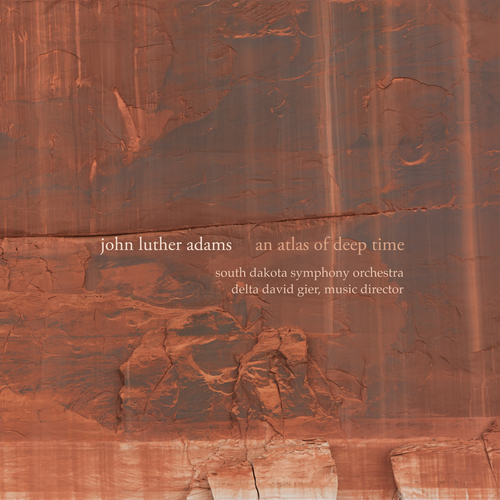
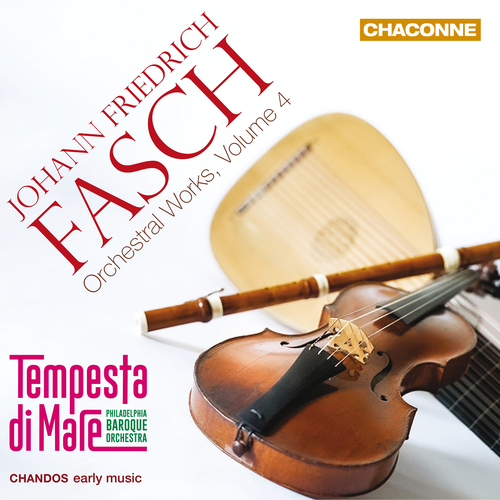
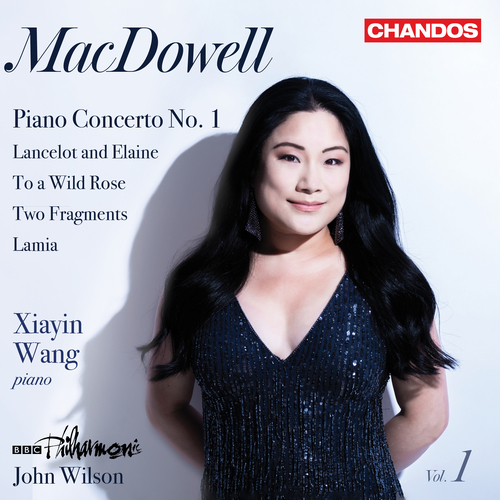
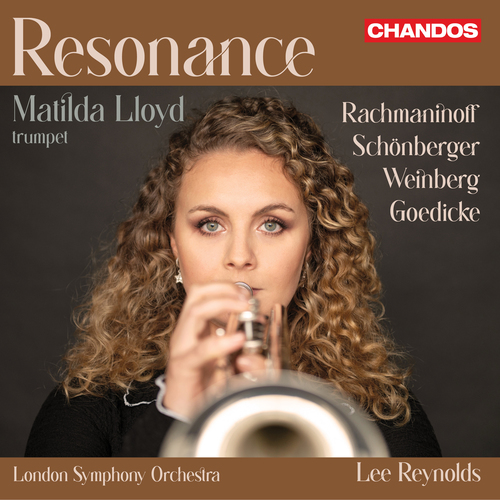
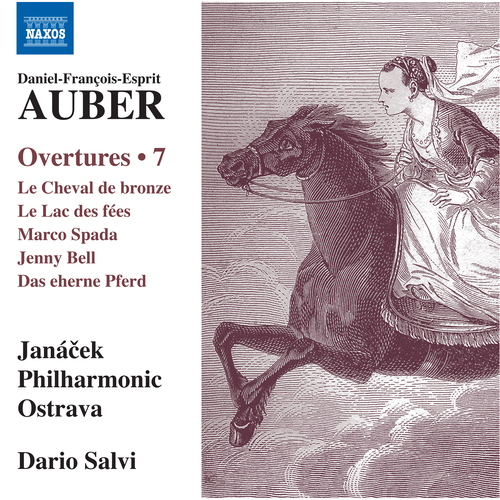
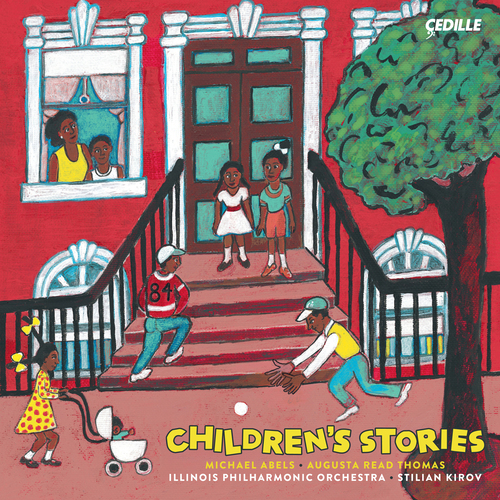
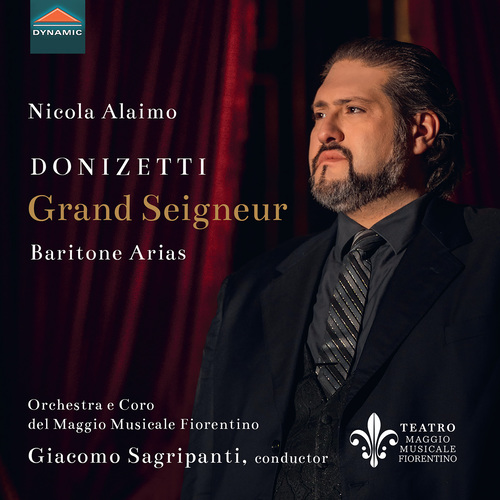
![WOLF-FERRARI, E.: Il Segreto di Susanna [Opera] WOLF-FERRARI, E.: Il Segreto di Susanna [Opera]](../../../sharedfiles/images/cds/hires/OC992.jpg)
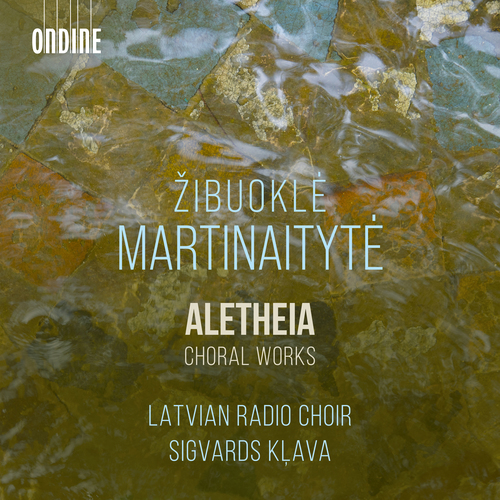
![VERDI, G.: Don Carlo [Opera] VERDI, G.: Don Carlo [Opera]](../../../sharedfiles/images/cds/hires/C230163.jpg)
![PERUGINI, R.: Il pellegrino del nulla [Opera] PERUGINI, R.: Il pellegrino del nulla [Opera]](../../../sharedfiles/images/cds/hires/TC991602.jpg)
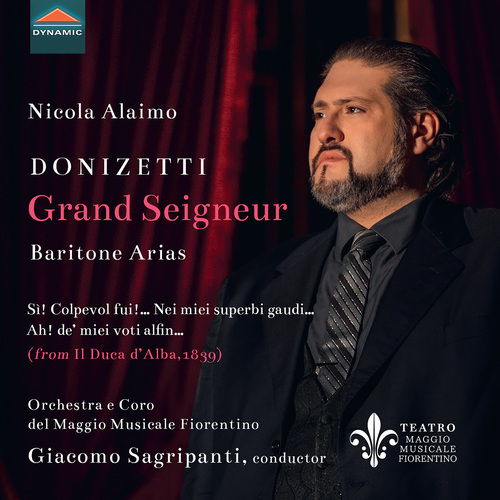
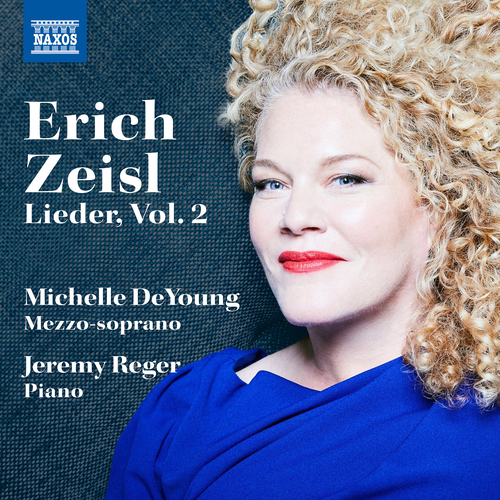
![BUSONI, F.: Doktor Faust [Opera] (Henschel • Brenna • Schwinghammer • Dahdah • Choir and Orchestra of Maggio Musicale Fiorentino • C. Meister) BUSONI, F.: Doktor Faust [Opera] (Henschel • Brenna • Schwinghammer • Dahdah • Choir and Orchestra of Maggio Musicale Fiorentino • C. Meister)](../../../sharedfiles/images/cds/hires/8.660531-33.jpg)
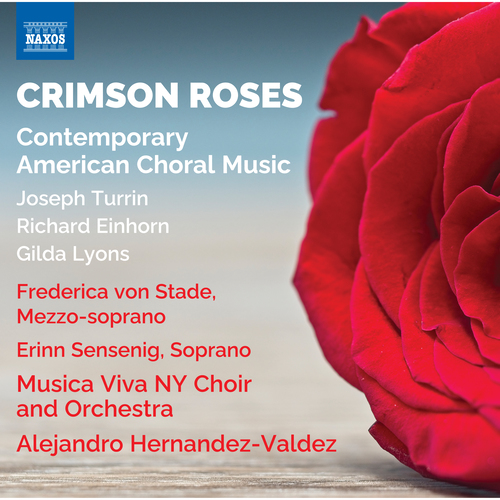
![MASSENET, J.: Hérodiade [Opera] (Dupuis • Margaine • Car • Polenzani • Deutsche Oper Berlin Chorus and Orchestra • Mazzola) MASSENET, J.: Hérodiade [Opera] (Dupuis • Margaine • Car • Polenzani • Deutsche Oper Berlin Chorus and Orchestra • Mazzola)](../../../sharedfiles/images/cds/hires/8.660540-41.jpg)
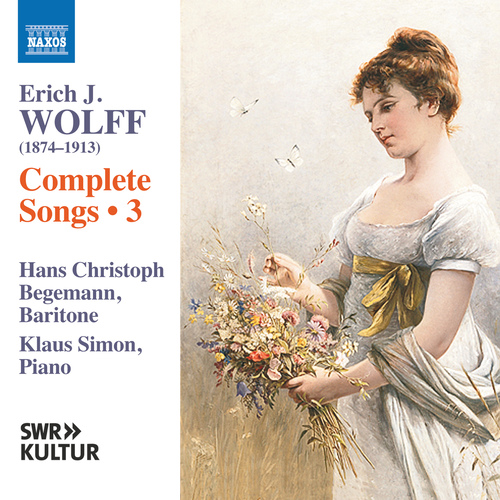
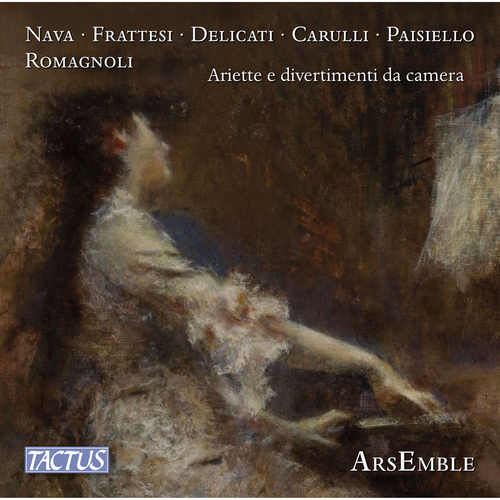
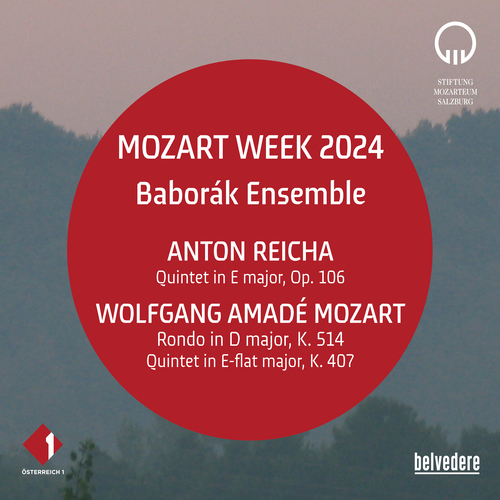
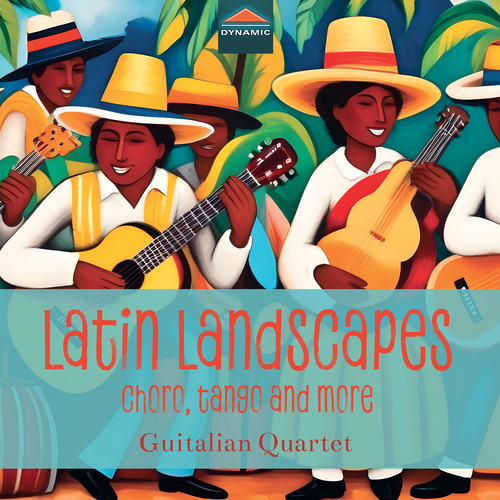
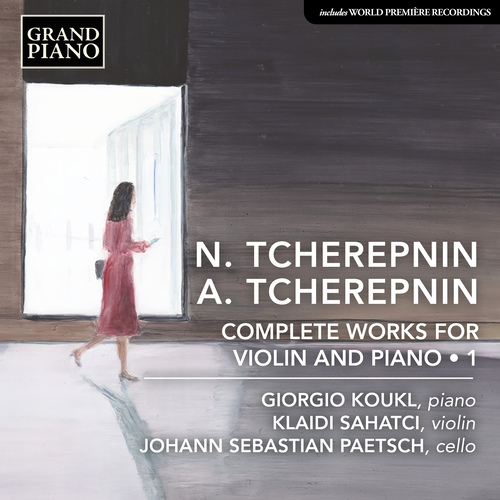
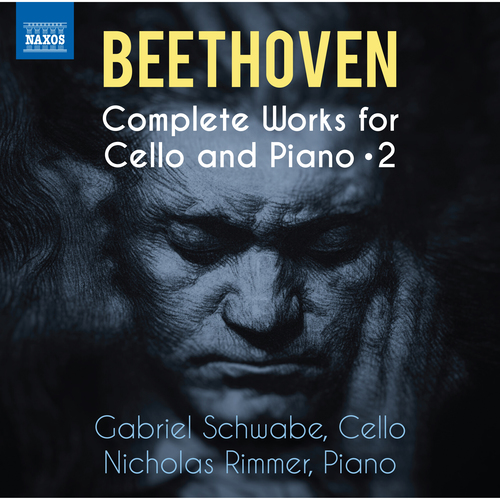
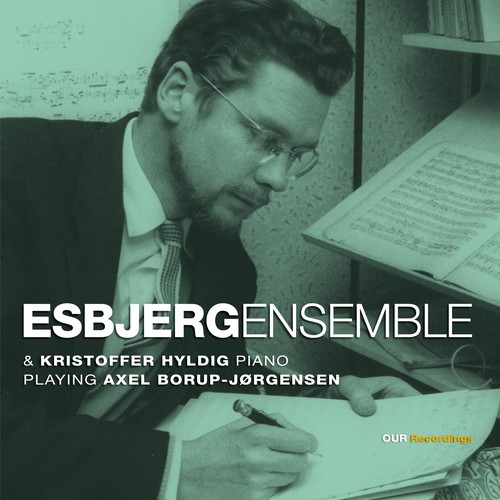
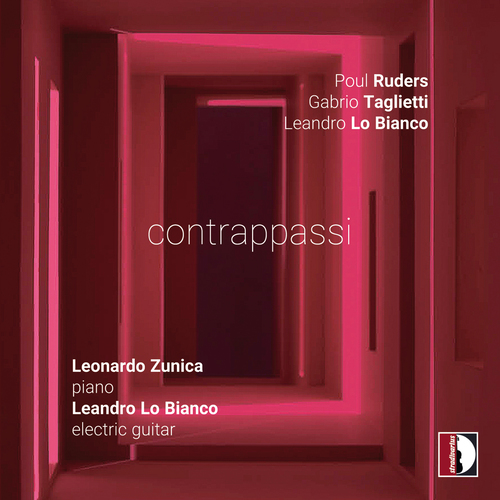
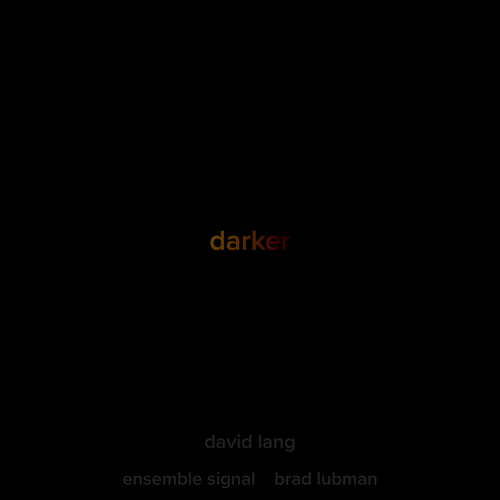
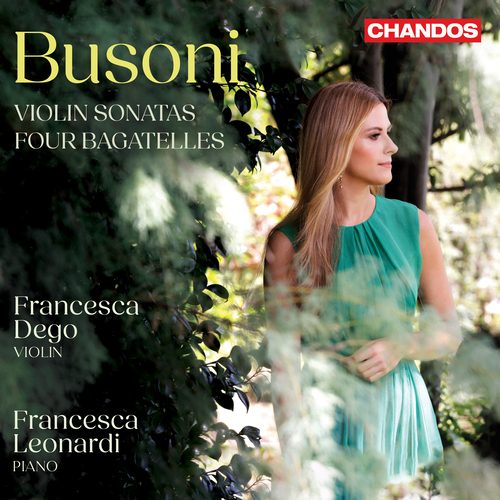
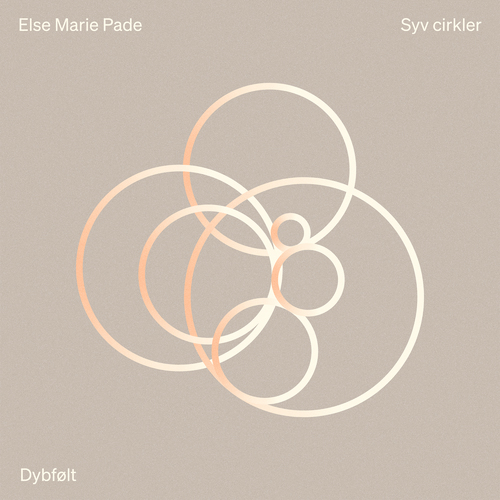
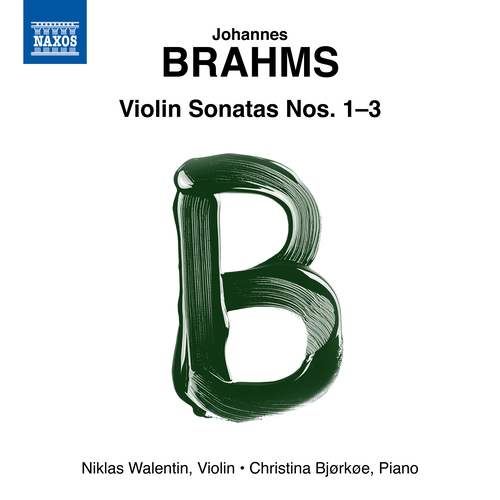
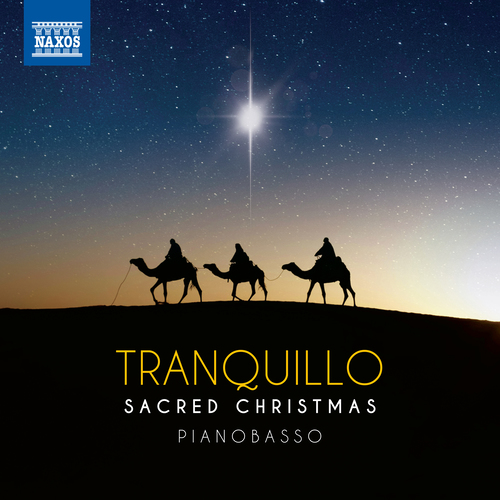
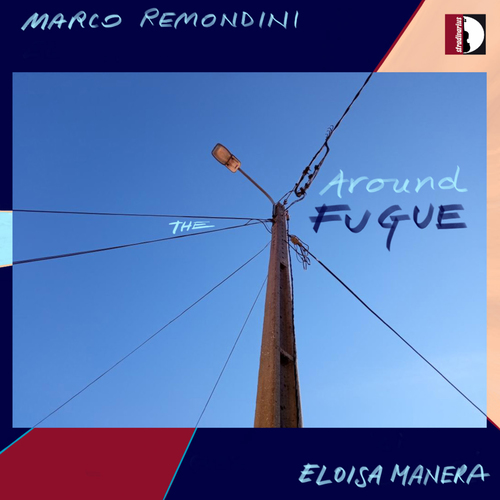
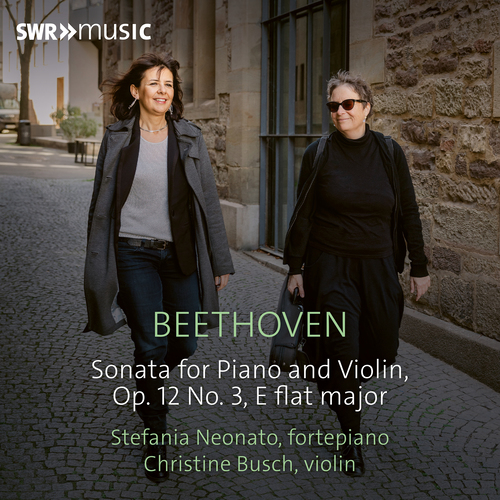
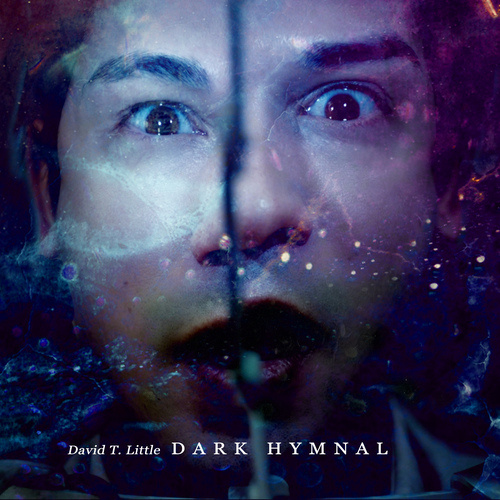
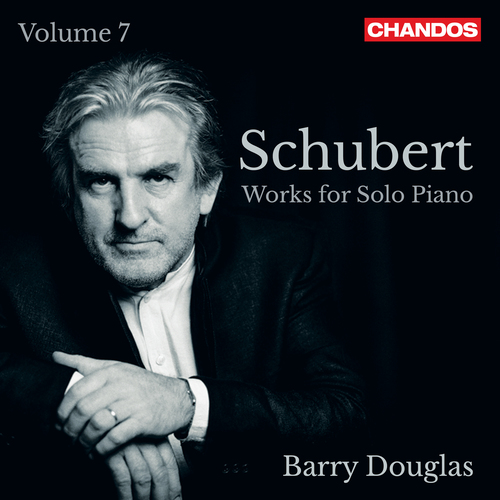
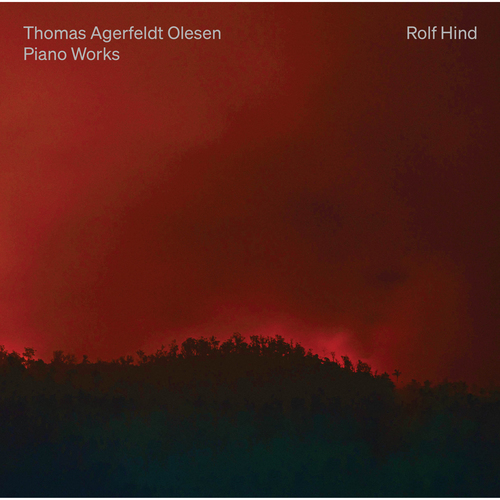
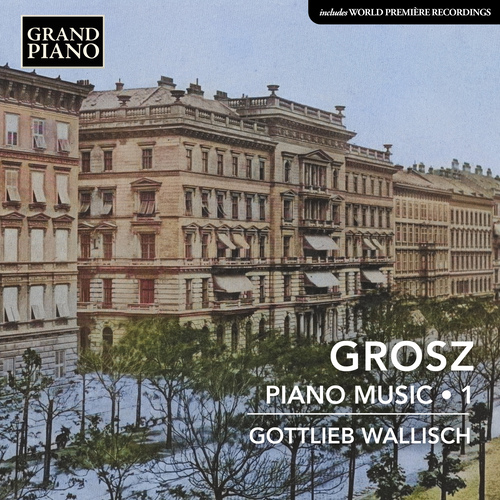

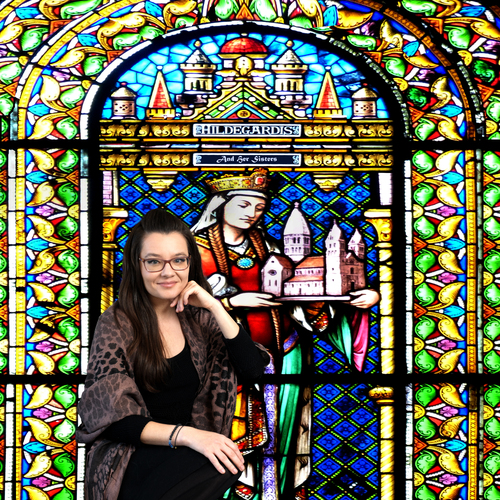
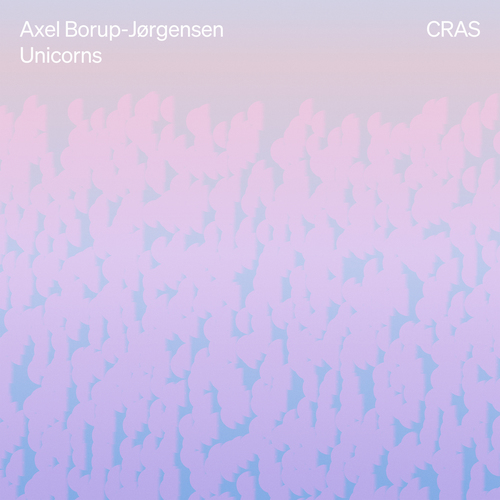
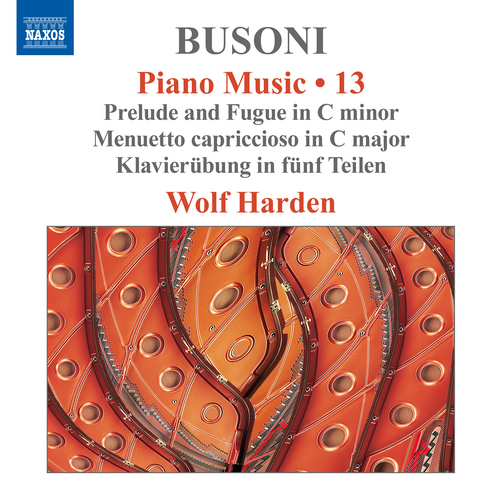
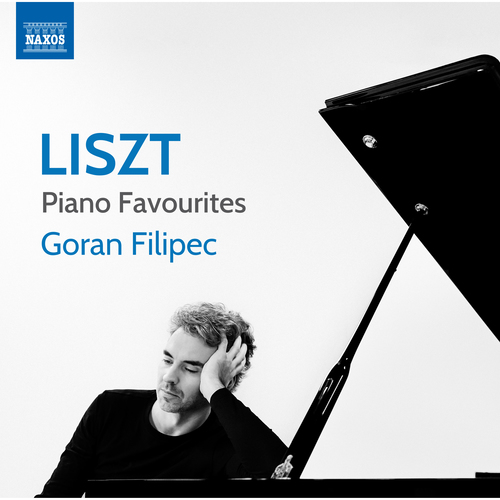
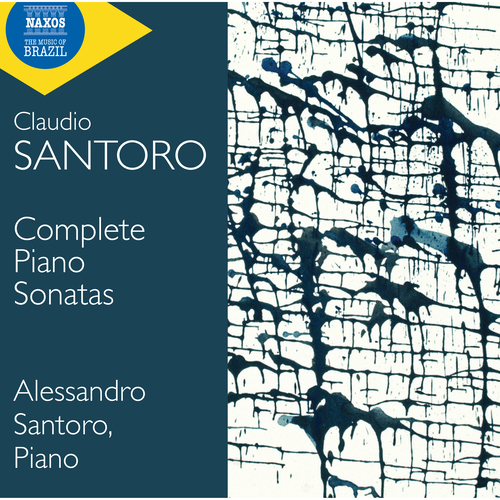

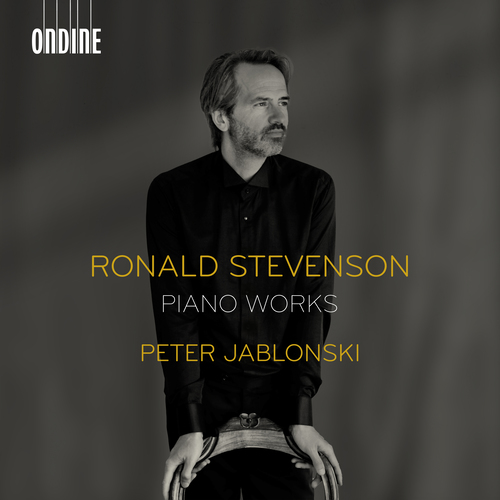
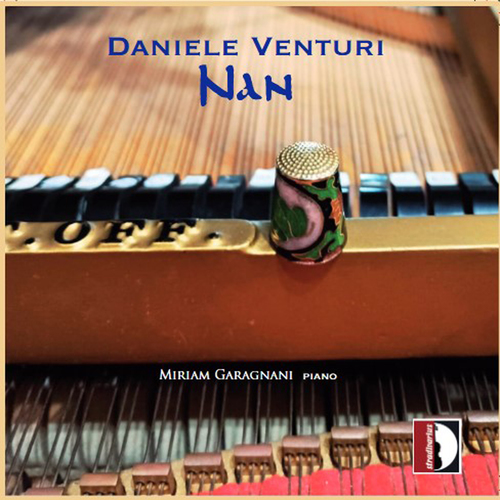
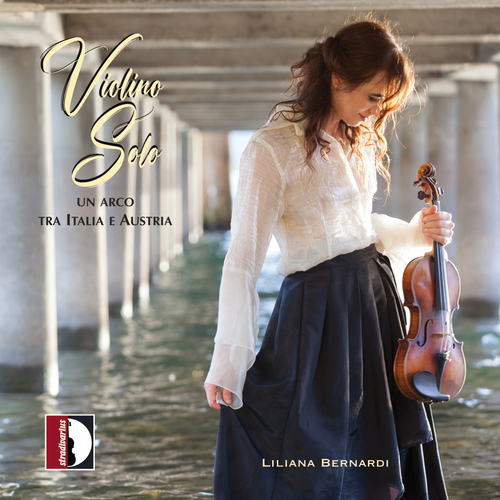
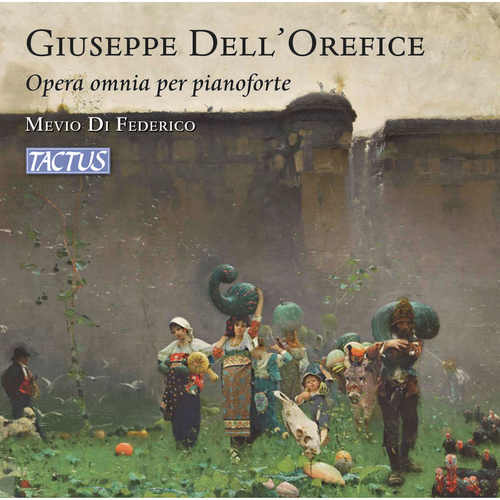
![MOZART, W.A.: Mitridate, re di Ponto [Opera] (Staatsoper Unter den Linden, 2022) MOZART, W.A.: Mitridate, re di Ponto [Opera] (Staatsoper Unter den Linden, 2022)](../../../sharedfiles/images/cds/hires/767908.jpg)
![BOITO, A.: Nerone [Opera] (Teatro Lirico di Cagliari, 2024) BOITO, A.: Nerone [Opera] (Teatro Lirico di Cagliari, 2024)](../../../sharedfiles/images/cds/hires/DYN-38047.jpg)
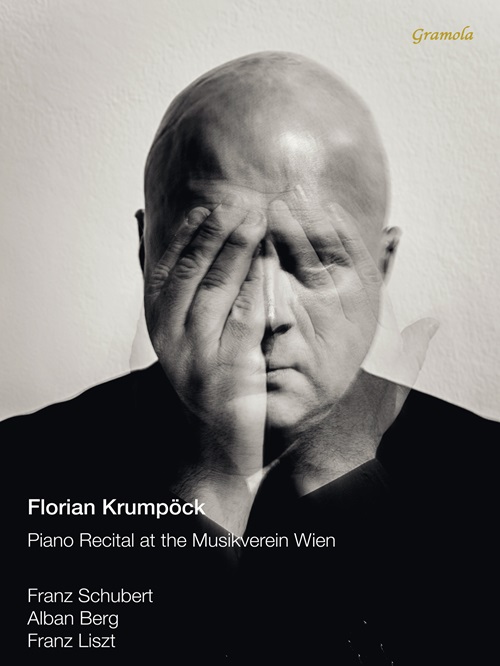
![HANDEL, G.F.: Brockes Passion [Oratorio] HANDEL, G.F.: Brockes Passion [Oratorio]](../../../sharedfiles/images/cds/hires/2.110755.jpg)
![PUCCINI, G.: Madama Butterfly [Opera] (Royal Opera House, 2024) PUCCINI, G.: Madama Butterfly [Opera] (Royal Opera House, 2024)](../../../sharedfiles/images/cds/hires/OA1391D.jpg)
